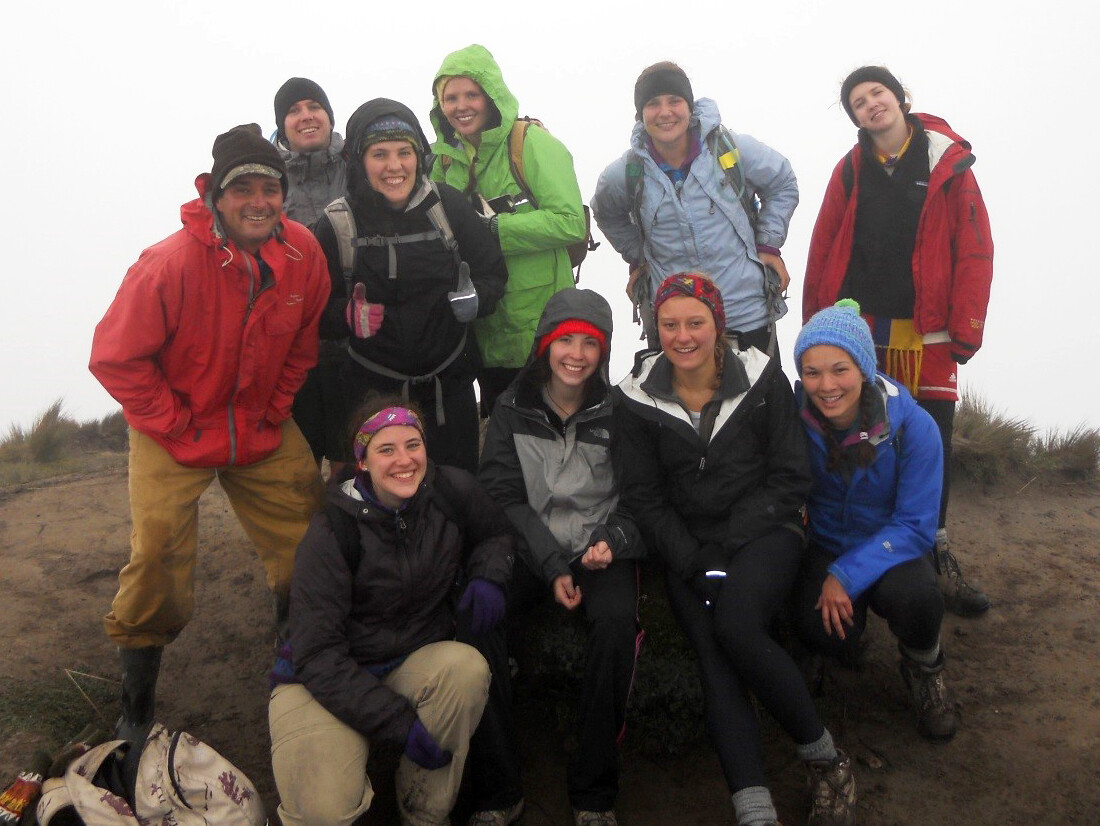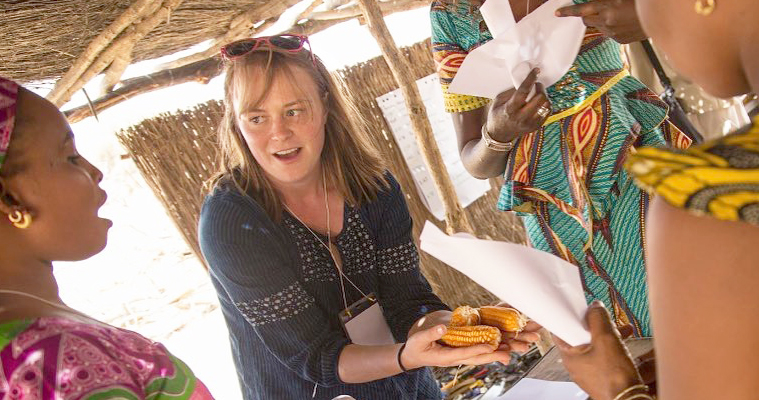What are the functions and styles of leadership? Is leadership hierarchical or horizontal? Authoritative or laissez-faire? Is it influential, collaborative, strategic, or hands on?
If you ask this question to Continuing and Distance Education Dean Cynthia Belliveau, Ed.D., she’ll tell you leadership encompasses all of the above.
“In a crisis, we need a chain of command, but leadership can’t always function that way,” she says, adding that leadership can be contradictory and not always what it seems.
In UVM Breakthrough Leaders of Sustainable Food System course program, Belliveau leads a morning workshop called, “Taste of Leadership.” Students are asked to use their senses—namely, taste—while eating Doritos, cheese puffs, frozen and melted ice cream, and canned peas.
Handing out Doritos, Belliveau asks each student to smell the chip, place it on their tongue and not chew or swallow for about 20 seconds. Students in the food system course in June of 2018 then described the Doritos as tasting like corn, paprika, and even a little bitter.
“Doritos aren’t meant to be eaten slowly, and when you go slower, the taste is not what you think,” says Belliveau, who teaches in UVM’s Department of Nutrition and Food Science. “When you use your senses, you shut off that critical eye, and it opens yourself up.”
Students reported that cheese puffs smelled like sweet cereal, peas tasted familiar, and frozen and melted ice cream had two distinctly different flavors.
“Our palates are set by age 10, and our taste buds are usually the last thing to go,” Belliveau explains. “Similarly, in leadership, it’s not easy to give up that past experience.”
After the flavors of ice cream, peas, and chips were washed down, students offered up what they learned about leadership:
- Observe, then act
- Don’t judge based on appearance
- Engage multiple senses and try to see things from different angles
- Past influences may be present but don’t always need to be used moving forward
- Things aren’t always what they seem
For Belliveau, the Taste of Leadership workshop is a way for students to see leadership through a different lens.
“I think we’re rewarded as leaders for making quick, technical fixes,” Belliveau says. “But to make adaptive changes, it takes bucking a system that isn’t conducive to long-term systems change.”
Learn about UVM Breakthrough Leaders of Sustainable Food Systems program. Registration is open and the course begins online each May combined with a residential component each June.
A variation of this piece was originally published on June 12, 2018 the UVM Food Feed blog.




